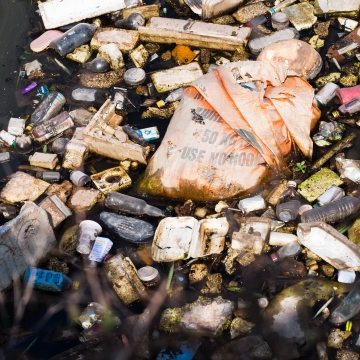Reducing marine debris pollution by changing household behavior through children education
This paper aims at evaluating the direct and indirect effects of an educational program on students and parents knowledge, attitudes and practices (KAP) regarding consumption and disposal of plastics. The program takes the form of an environmental education module with value-laded content, targeting 15 matched pairs of primary schools, as part of their subjects. The intervention is an adaptation of the content and curricula embedded in the National Oceanic and Atmospheric Administration (NOOA) marine debris program.
Does Awareness Influence Choice of Waste Disposal Methods? A Case of Migori Town, Kenya
Rapid economic growth, urbanization and population increase have fueled the production of large amounts of waste to the environment. Even so, the management of such waste has become a huge problem in many towns in developing nations. This has also led to the emergence of different methods of dumping waste such as; dumping in the dustbins, by the roadside, burying and even burning. This paper sought to give insights and inform policy on waste disposal methods and the level of awareness on proper garbage disposal practices. The research was carried out in Migori County in Kenya.
Recursos no renovables, diversificación y actividad económica en los departamentos de Colombia
En este artículo se discute qué tan deseable es la diversificación económica para el desempeño económico de los departamentos de Colombia en el periodo 1985-2013. En cuanto a la teoría económica se refiere, la causalidad entre estas dos variables es ambigua. Para ayudar a entender esta causalidad, los datos disponibles se analizan a la luz de dos corrientes teóricas: estructuralismo y el enfoque neoclásico.
Pagination
- Previous page
- Page 18
- Next page





